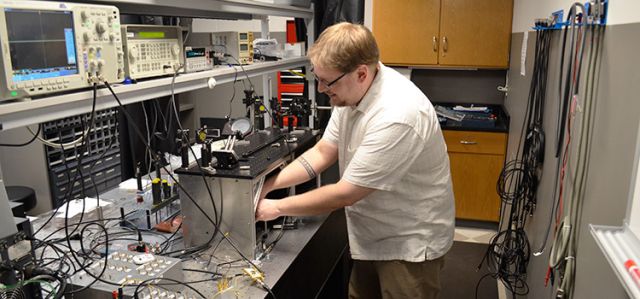Improving Mid-frequency Contrast in Sparse Aperture Optical Imaging Systems Based Upon the Golay-9 Array
Document Type
Article
Publication Date
2010
Publication Source
Optics Express
Abstract
Sparse aperture imaging systems are capable of producing high resolution images while maintaining an overall light collection area that is small compared to a fully filled aperture yielding the same resolution. This is advantageous for applications where size, volume, weight and/or cost are important considerations. However, conventional sparse aperture systems pay the penalty of reduced contrast at midband spatial frequencies. This paper will focus on increasing the midband contrast of sparse aperture imaging systems based on the Golay-9 array. This is one of a family of two-dimensional arrays we have previously examined due to their compact, non-redundant autocorrelations. The modulation transfer function, or normalized autocorrelation, provides a quantitative measure of both the resolution and contrast of an optical imaging system and, along with an average relative midband contrast metric, will be used to compare perturbations to the standard Golay-9 array. Numerical calculations have been performed to investigate the behavior of a Golay-9 array into which autocorrelation redundancy has been introduced and our results have been experimentally verified. In particular we have demonstrated that by proper choice of sub-aperture diameters the average relative midband contrast can be improved by over 55%.
Inclusive pages
4417-4427
ISBN/ISSN
1094-4087
Copyright
Copyright © 2010, Optical Society of America
Publisher
Optical Society of America
Volume
18
Issue
5
Peer Reviewed
yes
eCommons Citation
Stokes, Andrew J.; Duncan, Bradley D.; and Dierking, Matthew P., "Improving Mid-frequency Contrast in Sparse Aperture Optical Imaging Systems Based Upon the Golay-9 Array" (2010). Electro-Optics and Photonics Faculty Publications. 31.
https://ecommons.udayton.edu/eop_fac_pub/31
COinS



